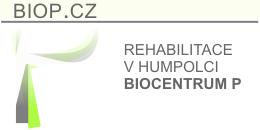

O Biocentru P
To Buy Chloroquine Online Visit Our Pharmacy ↓
 Chloroquine and Cancer Research: a Surprising Connection
Chloroquine and Cancer Research: a Surprising Connection
Chloroquine, a drug historically famed for its efficacy against malaria, has emerged as a potential agent in the realm of cancer treatment. This anti-malarial medication, discovered over a century ago, is recognized for its anti-inflammatory properties and ability to cross the blood-brain barrier. Its role in cancer therapy was serendipitous, as researchers noted its efficacy in killing cancer cells during in vitro experiments initially aimed at infectious diseases.
The repurposing of chloroquine for oncological applications stems from its unexpected influence on cellular processes that are common to both malaria and cancer. By exploiting the similarities between the proliferation of malaria parasites and neoplastic cells, scientists are uncovering novel pathways through which chloroquine can be integrated into cancer treatment regimens. Its potential for transforming the landscape of cancer therapy pivots on this promising versatility, marking a shift from traditional antimalarial use to a multi-faceted therapeutic that may improve outcomes for patients with cancer.
Surprising Synergy: How Chloroquine Affects Cancer Cells
Chloroquine, traditionally used to treat malaria, has emerged as a potential ally in cancer treatment due to its multifaceted effects on cancer cells. Studies have discovered that chloroquine can sensitize tumor cells to chemotherapy and radiation therapy. It disrupts the cancer cell's internal waste disposal system, causing toxic waste to accumulate within the cell and eventually lead to cell death. This ability to selectively target cancer cells while sparing healthy ones is a significant breakthrough in oncology.
Further research has revealed that chloroquine's mechanisms of action extend to the inhibition of cancer cell proliferation and metastasis. By interfering with the cell's genetic material and energy production, it creates an inhospitable environment for cancer cell survival and replication. This has profound implications for its use as a complementary therapy, working in conjunction with traditional cancer treatments to enhance their effectiveness and, potentially, to reduce their toxic side effects.
Autophagy Inhibition: a Secret Weapon Against Tumors
Within the realm of cancer research, chloroquine has emerged as a notable inhibitor of autophagy, a cellular process that degrades and recycles damaged organelles and proteins. While autophagy can normally help protect against cancer, in established tumors, it often provides a survival advantage to cancer cells by helping them cope with metabolic stress and treatment-induced damage. By interfering with this process, chloroquine can induce a state of cellular stress in cancer cells, making them less able to recover from the effects of chemotherapy or radiotherapy. Its potential to enhance the cytotoxicity of anti-cancer treatments by modulating autophagic pathways has sparked interest in the scientific community.
Chloroquine’s role in impeding the protective autophagic mechanism has been put to the test in various oncological settings, demonstrating a capacity to promote apoptosis, or programmed cell death, specifically in cancer cells. This selective toxicity is especially valuable in the fight against malignancies that have proven to be resistant to conventional therapies. Investigations continue as researchers delve deeper into the dosage and timing needed to maximize chloroquine's effectiveness when combined with other treatments. The repurposing of this antimalarial drug represents a promising adjunct strategy in the ongoing battle against cancer.
The Promise of Chloroquine in Oncology Trials
Chloroquine, traditionally known for its role in treating malaria, has emerged as a potential ally in cancer treatment. Its entry into oncology trials has been met with considerable interest as researchers explore its effectiveness against various cancer types. These clinical trials are designed to understand the optimal dosing, safety profiles, and efficacy of chloroquine, especially in combination with other cancer therapies. The early-phase trials have shown promise, with some indicating that chloroquine can enhance the cytotoxic effects of chemotherapy and radiation therapy, leading to improved patient outcomes.
In the clinical landscape, chloroquine's ability to potentiate antitumor responses has propelled numerous studies, examining its impact on survival rates and disease progression. As a repurposed drug, chloroquine offers an advantage of having a well-characterized drug profile, which can potentially accelerate its clinical deployment if proven effective. More comprehensive phase II and III trials are underway, focusing on its use as both an adjunct and a monotherapy. If the trial outcomes are positive, chloroquine could become a part of standard cancer treatment regimens, offering hope to patients who are battling this complex disease.
Overcoming Resistance: Chloroquine's Role in Drug Efficacy
One of the pivotal challenges in cancer treatment is the development of resistance to chemotherapy drugs. Chloroquine shows promise in tackling this issue by enhancing the sensitivity of cancer cells to therapy. It operates by modulating the cell's autophagy pathway, which cancer cells exploit for survival under therapeutic stress. By inhibiting autophagy, chloroquine can prevent tumor cells from deploying their standard defense mechanisms against chemotherapeutic agents, thereby restoring drug efficacy. This improvement in drug sensitivity not only reins in tumor growth but also may diminish the necessary chemotherapy dosages, potentially reducing toxic side effects for patients.
Additionally, chloroquine has been found to interfere with the cancer cells' ability to repair DNA damage caused by chemotherapy. This effect is significant because one of the reasons for resistance is the enhanced capability of cancer cells to rapidly repair the damage inflicted by such treatments. By hindering these repair processes, chloroquine can lead to an accumulation of lethal damages in tumor cells, amplifying the effectiveness of anticancer drugs. Current research is delving into the potential of combining chloroquine with various chemotherapeutic regimens, looking to establish protocols that capitalize on these mechanisms to overcome drug resistance and improve treatment outcomes for patients battling cancer.
Future Frontiers: Chloroquine's Potential in Personalized Medicine
The advent of personalized medicine has opened up a new realm of possibilities for the application of chloroquine within cancer treatment protocols. This approach tailors therapy to individual genetic profiles, considering specific tumor characteristics to enhance treatment efficacy. Chloroquine's versatility may prove invaluable in this context; its potential to modify the tumor microenvironment and affect cancer cell metabolism offers a strategic advantage. By integrating chloroquine into personalized treatment plans, researchers hope to use it as an adjuvant that complements targeted therapies, possibly reducing tumor resistance to conventional treatments and improving patient outcomes.
Furthermore, ongoing research into biomarkers that predict chloroquine responsiveness presents an opportunity to identify patient subsets most likely to benefit from its inclusion. This precision in selecting candidates for chloroquine-based therapies could mitigate adverse effects and prevent the unnecessary treatment of those unlikely to respond. As our understanding of cancer biology deepens, chloroquine may emerge as a cornerstone drug in the bespoke treatment of cancer, representing a shift towards more tailored and effective oncological strategies that harness its full therapeutic potential.
https://imed.isid.org/wp-content/languages/themes/po/amitriptyline.html https://gaetzpharmacy.com/strattera.html https://rxbuywithoutprescriptiononline.net





